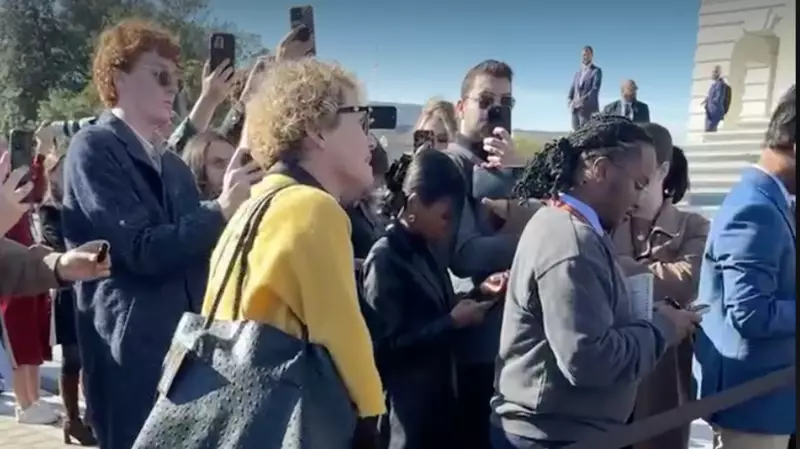
In a dramatic display of ongoing political divisions, House Speaker Mike Johnson abruptly terminated a press conference on Thursday after facing pointed questions from Democratic Congresswoman Chrissy Houlahan about the January 6th committee.
Tense Exchange Precedes Walkout
The confrontation unfolded during what was supposed to be a routine media briefing. Representative Houlahan, a Pennsylvania Democrat, directly challenged Speaker Johnson about his position regarding the January 6th select committee's work and findings.
According to witnesses, Johnson appeared visibly uncomfortable with the line of questioning from his Democratic colleague. Rather than addressing the substance of Houlahan's inquiries, the Republican leader quickly concluded the proceedings.
Political Theater on Capitol Hill
The incident represents more than just a heated moment between political opponents. It underscores the deep partisan divides that continue to characterize discussions around the January 6th Capitol attack and its aftermath.
Observers noted that Johnson's decision to end the press conference rather than engage with Houlahan's questions speaks volumes about the sensitivity surrounding January 6th investigations within Republican leadership circles.
Broader Implications
This public confrontation comes at a time when:
- Bipartisan cooperation remains elusive on key issues
- January 6th continues to be a flashpoint in political discourse
- Congressional dynamics grow increasingly polarized
- Public trust in political institutions faces ongoing challenges
The walkout has already generated significant discussion among political analysts, with many viewing it as symbolic of the current state of American politics where substantive dialogue often gives way to political theater.
Neither Johnson's nor Houlahan's offices have released additional statements following the incident, leaving political observers to speculate about potential longer-term consequences for congressional relations and bipartisan cooperation efforts.





